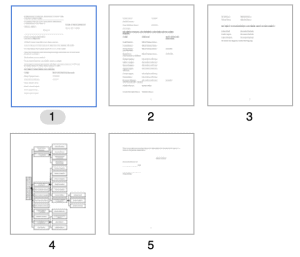

Under NYCRR 207.16, an affidavit of heir is required in New York petitions for probate when the decedent was survived by no distributee, one distributee or where the relationship of the distributees to the decedent is grandparents, aunts, uncles, or first cousins.
If you need an affidavit of heir, we at the Law Offices of Albert Goodwin are here for you. You can send us an email at [email protected] or call us at 212-233-1233.
This affidavit of heir should not be confused with the small estate affidavit required under SCPA 1310.
The affidavit of heir is an affidavit executed by a disinterested person, which should include a family tree unless the distributee is the spouse or only child of the decedent. The affidavit of heir must include how and how long the disinterested person knows the decedent and is familiar with his family, the disinterested person’s relationship to the decedent, who the decedent’s distributees are, and a statement that there are no other persons of the same or nearer degree of relationship who survived decedent. This affidavit is executed under penalty of perjury.
The affidavit is not conclusive evidence of the identities of the heirs. It may be rebutted. An heir omitted in an affidavit of heir may contest or dispute the affidavit by filing a correction affidavit in the same probate proceeding together with evidence to establish his relationship with the decedent (such as a birth certificate).
Section 207.16 states as follows:
(b) Whenever, in a petition for probate or administration, a party upon whom the service of process is required is a distributee whose relationship to decedent is derived through another person who is deceased, the petition must either:
(1) show the relationship of the distributee to decedent and the name and relationship of each person through whom such distributee claims to be related to decedent; or
(2) have annexed a family tree table or diagram showing the name, relationship and date of death of each person through whom such distributee claims to be related to the decedent, which table or diagram shall be supported by an affidavit of a person having knowledge of the contents thereof.
(c) If the petitioner alleges that the decedent was survived by no distributee or only one distributee, or where the relationship of distributees to the decedent is grandparents, aunts, uncles, first cousins or first cousins once removed, proof must be submitted to establish:
(1) how each such distributee is related to the decedent; and
(2) that no other persons of the same or a nearer degree of relationship survived the decedent.
Unless otherwise allowed by the court, the proof submitted pursuant to this subdivision must be by an affidavit or testimony of a disinterested person. Unless otherwise allowed by the court, if only one distributee survived the decedent, proof may not be given by the spouse or children of the distributee. The proof shall include as an exhibit a family tree, table or diagram, except no such table or diagram shall be required if the distributee is the spouse or only child of the decedent.
When drafting an affidavit of heir, it is best to consult with an estate lawyer with expertise on the subject matter to ensure that no mistakes are made. Should you need to draft an affidavit of heir, we, at the Law Offices of Albert Goodwin, are here for you. We have offices in New York City, Brooklyn, NY and Queens, NY. You can call us at 212-233-1233 or send us an email at [email protected] .

Law Offices of
Albert Goodwin, PLLC
31 W 34 Str, Suite 7058
New York, NY 10001
Albert Goodwin, Esq. is a licenced New York attorney with over 15 years of courtroom experience. His extensive knowledge and expertise make him well-qualified to write authoritative articles on a wide range of legal topics.
Prior results do not guarantee a similar outcome
This website contains general information and may not apply to your case.
This website does not form an attorney-client relationship.
We are not your attorney, unless you hired us.
© Copyright 2008-Current, Law Offices of Albert Goodwin, PLLC, Albert Goodwin, Esq.